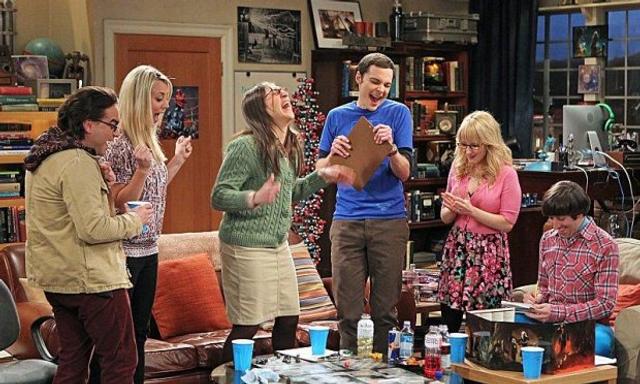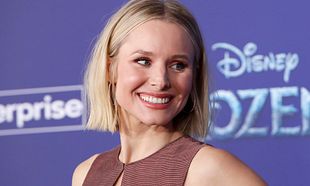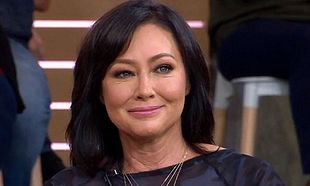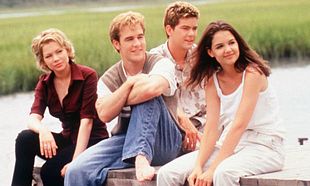The Big Bang Theory has now forced itself on TV audiences for a total of nine years and, in that time, the sitcom hasn't even ONCE attempted to make a good episode. More often than not, the series relies on stereotypes, poor writing, lazy jokes and the belief that people who are remotely intelligent are, by and large, weirdos.
Let's start with the central cast, each and every one of them pulled from a cursory glance at "nerd" culture and then filled in with the type of generalisations that you'd expect from short-form sitcoms. You have Leonard, played by Johnny Galecki. He's an experimental physicist who - SURPRISE FUCKING SURPRISE - loves Dungeons & Dragons, is lactose intolerant, bad with women and has an IQ of 173. Next is Sheldon Cooper, played by Jim Parsons. Again, SURPRISE FUCKING SURPRISE, he's got an eidetic memory, is socially awkward, finds social interaction difficult to understand and claims that he's been tested for autism and is boastful of his mental acuity. Oh, and he's a virgin for the first half of the series' run. Top-notch commentary there. Next is Raj, a bashful Indian particle astrophysicist who can't talk to women unless he's drunk and has to remind everyone that he's not a gay on a semi-regular basis.

Topping off this cavalcade of shitness is Penny, played by Kaley Cuoco. She's an aspiring actress who waits tables to pay the bills and, wouldn't you know it, ends up with Leonard by the end of the first season. Oh, and there's a character - Howard, played by Simon Helberg - who thinks he's a ladies man. Because what's more funnier than a nerd who can't get on with members of the opposite sex? A nerd who thinks he can. Hilarious stuff. Smash these stereotypes together and what do you get? Even more stereotypes. Every episode follows a similar plot, usually revolving around the fact that the nerds can't actually function in modern society and fail to grasp even the most basic of concepts of life, relationships and being humans. One episode actually features Howard trying to make up with his girlfriend because he had cybersex on World of Warcraft with what he thought was a woman, but was actually a man. Again, just hilarious stuff.
It's true that most sitcoms work off archetypal characters. There's the funny one, the sarcastic one, the lady's man, the neat-freak. Friends had it, Cheers had it - they're all general personality archetypes. That formula, for better or worse, has stayed with sitcoms since their inception. What The Big Bang Theory does is, in a way, clever. They simply read over a couple of fansite forums, pull dialogue and identifiers from them and then slap them over these archetypes and hope for the best. It works, for the most part. The series has had a number of well-known cameos from cast members of Star Trek, Battlestar Galactica and Firefly. You could argue that it's a good thing; bringing niche interests and the like into the mainstream. Here, it's done so they can poke fun at it. They're into Star Trek, they really like D&D, Warhammer is hilarious because it's painting action figures. It furthers pushes the idea that if you're into anything other than normalcy, you're a freak. Anyone who has an interest in these things, in real-life, knows this fact all too well. The Big Bang Theory is simply reflecting it back at them and fucking laughing at them to their face while they do it.
Of course, it's well-documented in the series that the nerds, as it were, don't care about the so-called outside world. They're happy to live in their own world, enjoy what they enjoy, and be happy for the most part. But you couldn't have a show about nerds who don't want to interact with the outside world, could you? Of course you could. Look at Graham Linehan's The IT Crowd. A show about a group of misfits who work in a cavern beneath a giant corporate entity and regularly turn their nose up at everyone upstairs. If the writers of The Big Bang Theory wanted to make a comedy about nerds, The IT Crowd is the blueprint. It's respectful, but also shows just how weird and off-kilter it is. In that sense, it works both angles - bringing in those who may not be overly familiar with the intricacies and eccentricities of nerd culture and appealing to those who know them all too well.
Do the writers of The Big Bang Theory REALLY think that just because you're into Star Trek that you're a nerd? Eddie Murphy is a lifelong Star Trek fan and was originally supposed to appear in Star Trek IV: The Voyage Home. Ben Stiller named his production company, Red Hour, after a '60s episode of the TV series. Maybe it's because they're all really intelligent that they're all inept in social situations. That must be it. No, actually, it isn't. Dolph Lundgren, who played Ivan Drago in Rocky IV and is known for playing hulking action roles, has an IQ of over 160 and holds degrees in chemical engineering and chemistry. Ashton Kutcher was planning to do a Masters in Biochemical Engineering before he signed on for That '70s Show. That's just well-known people, mind.
There are so many examples of piss-poor writing in The Big Bang Theory that it's hard to pick them out. The show lazily takes on aspects of nerd culture, shows people how weird it is, tries to make you think that it's actually endearing, roll credits and on to next week's show. The same goes for how the show deals with each character's eccentric behaviour. Social anxiety isn't a fucking joke that can be trotted out when they want to show just how socially inept these nerds are. People truly do suffer from shyness and an inability to interact in social scenarios, but here it's the butt of the joke. Their misadventures with women - who who are reduced to tokenism and props, for the most part - are all set to canned laughter whilst they struggle on. Is crippling loneliness really that funny? Is being socially inept honestly that entertaining for audiences that they can get a total of NINE seasons out of it?
(You can also listen to our podcast on all your comments right here, if you'd like.)










































































